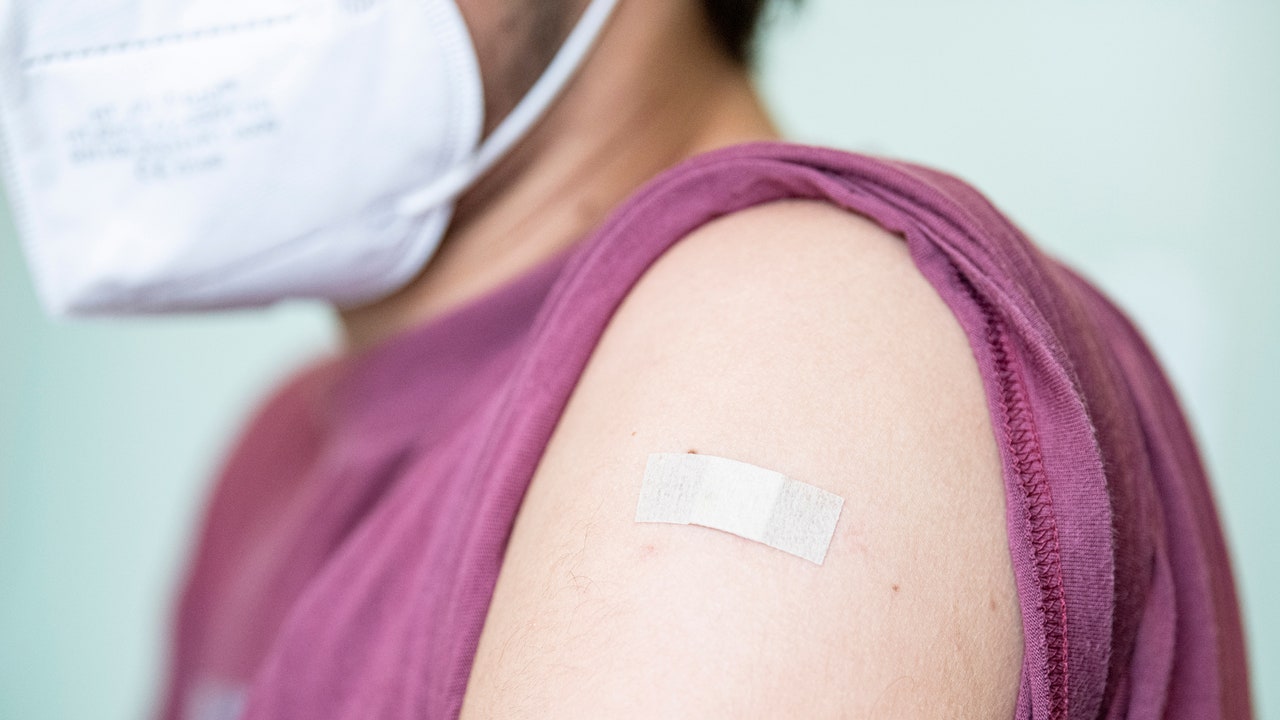When Parents Forbid the COVID Vaccine

Just over half of us—fifty-four per cent of Americans—are now vaccinated, or at least partly vaccinated, against COVID-19. This is progress, but still a very long way from what we need for herd immunity. Until we get there, the coronavirus can keep recirculating almost endlessly. The C.D.C. now recommends vaccination for everyone twelve years of age or older. Young people rarely get severely ill from the virus, but, of course, they can transmit it to others. Recently, in a conversation for “The New Yorker Radio Hour,” I spoke about the vaccine with a teen-ager who wants to get it but whose parents are in thrall to anti-vaccine misinformation. Our interview has been edited for length and clarity.
I know you want to stay anonymous, so what should I be calling you?
Aaron Williams. I went on a random-name generator, clicked the button a bunch of times, and that’s what I got.
You’re on summer break?
Yes. That’s why my parents aren’t home and I can do this interview.
You weren’t sure at first if you wanted to talk about this. What were you worried about?
I would say that my parents are good people, but I’ve really grown tired of all the fighting and issues that we’ve had over simple things, such as a vaccine.
You’re sixteen?
Yes.
So that means that you can get a Pfizer vaccine in Arizona, where you live, but your parents won’t let you.
Yes.
What’s their concern?
Originally, their concern was that the vaccine is underdeveloped and the risks aren’t known. Now they’re saying that [it’s] the long-term risks—because of it “altering your DNA,” quote, unquote, even though my friends have taken it, my teachers have taken it. They’ve all been fully vaccinated for months now, and they’re all doing perfectly fine, but my parents insist that in four years they will all suddenly start dying because of how it rewrites your DNA.
So you’ve been at school?
Last year, when COVID originally hit, around March, they took us to in-home learning. But then, for the entirety of my sophomore year, I’ve just been at physical school, with masks and social distancing. But, near the end, when most people had gotten the vaccine, they wouldn’t mask up, and they would just walk around, not caring about social distancing.
Why is that?
Because they learned that it doesn’t really harm them. So if they get COVID it doesn’t matter, since they’re going to be immune to it and they’re not going to have any symptoms.
Even though they might pass it on to somebody else whom it could harm?
The thing is, everybody is vaccinated. Pretty much everyone at my school is fully vaccinated.
Wow. So you must feel kind of lonely, in a certain way.
Yeah. I think the moment that I realized was when my friends were planning a gathering, sort of a video-game tournament, and it was going to be at one of my friends’ houses. They just left me out of it, and I only found out because I saw it from one of my friends’ phones, a text message that popped up about the gathering, and then I asked about it. They said, “Oh, yeah, it’s been this thing that we’ve been working on, but you can’t really come since you’re not vaccinated.” That’s when I realized that this is pretty important, and I’m starting to get left out of life because of not being vaccinated.
Just to be clear, is it legal in Arizona for you to get vaccinated without parental consent?
Sadly, no. Otherwise I would have already gone and got it, because there’s a CVS one to two minutes away from my house.
What’s the first time you remember talking to your parents about whether you get vaccinated or not, and what was that discussion like?
We were in the living room, watching TV, and Dr. Fauci was giving a sort of speech and explaining why the vaccine is safe and now it’s available to most people and you should go get it. As soon as he said that, my mom immediately said, “I don’t trust that,” and she showed me some Facebook screenshot of someone saying that it alters your genes and it’s unsafe. And I obviously went and I found the research paper that says why mRNA vaccines are actually safe. That’s when we had our first fight, because it escalated. They had been going down the kind of Trump and far-right rabbit hole for as long as I can remember. When my teachers got it, in January, I told my parents about it, and they were originally slightly hesitant, but they said, “O.K., we’ll wait, like, three months and see what happens.” We waited three months, and during the span of that time they started going through all sorts of conspiracy rabbit holes, and because of that they started changing their minds and they pushed it back to six months, to a year, to two years, until they just said, “You’re never getting the vaccine.”
So, Aaron, I was reading a thread that you posted on Reddit, and in it you basically try to figure out if there’s some way for you to get vaccinated without your parents’ permission. What kind of options have you considered? Can you walk me through them?
[Many people], without knowing which state I lived in, just suggested that I go and talk to a doctor, and the doctor would be able to sign off on the vaccines—saying that, with the informed-consent law, I would be able to get it. But in Arizona that law doesn’t [cover minors]. Someone suggested that once I get my driver’s license I could drive over to California, and some other people suggested that I would have a friend’s parents take me and they could be the adult, because they never require any sort of proof that that person is, in fact, your parent. They just want an I.D. from them.
You’re not going to do anything illegal, are you?
I’m not. I would never—
Have you thought about that?
I would never do any of that because I really don’t want to be breaking the law or anything similar just to get a vaccine.
Now, what would happen if school required you to get vaccinated to appear in person? Would your parents still not let you get vaccinated?


